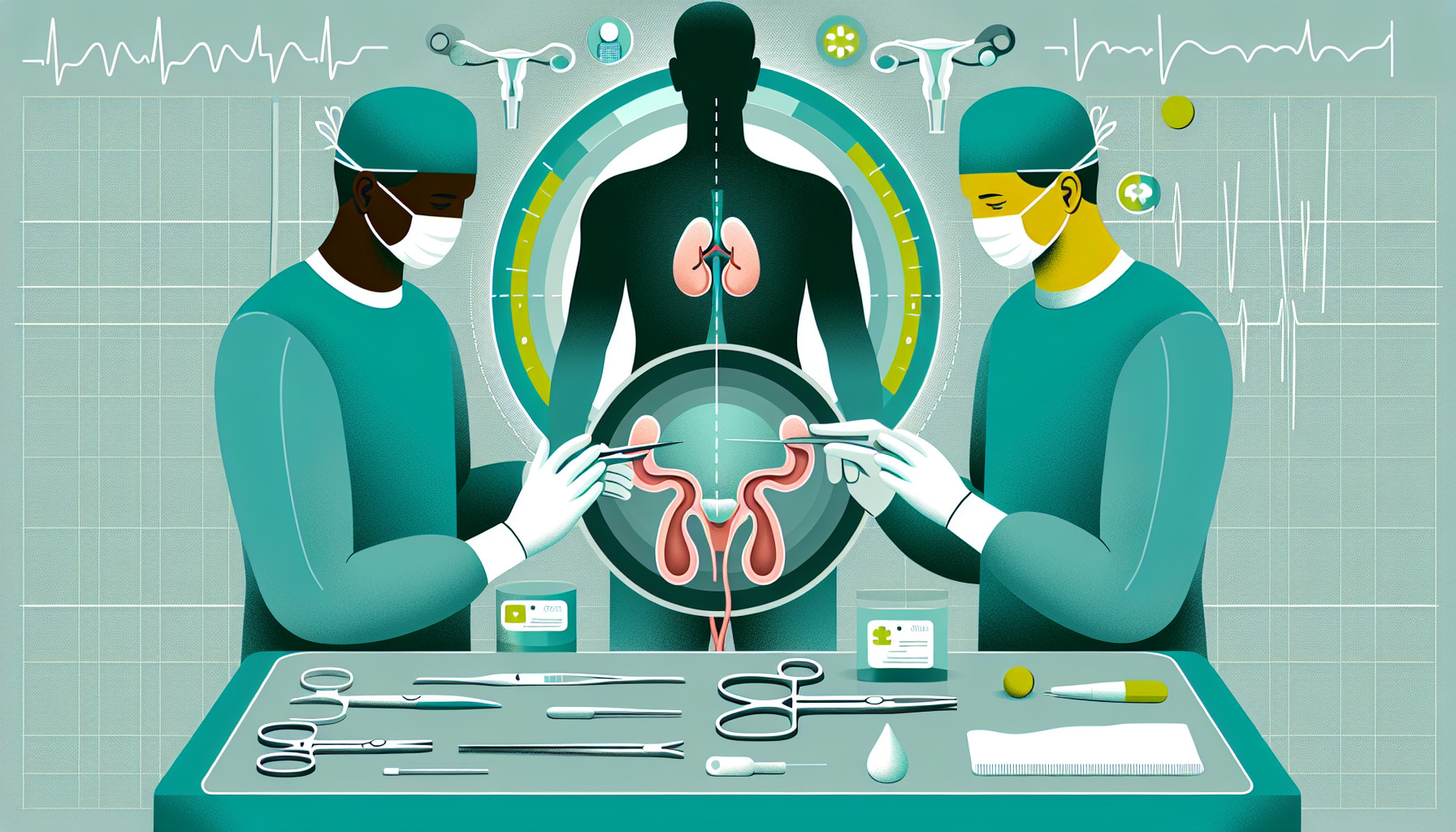Our Summary
This study compares two different surgical techniques used to treat bladder cancer: transperitoneal radical cystectomy (a standard procedure that involves removing the bladder through the abdominal cavity) and extraperitoneal radical cystectomy (a similar procedure that avoids the abdominal cavity). Both procedures have risks such as infection, bleeding, and a condition called ileus, where the intestines stop working properly.
Researchers looked at various studies on the subject, including data from 1207 patients. They found that patients who had the extraperitoneal procedure were less likely to develop ileus after surgery. However, the two techniques showed no significant difference in operation time, blood loss, length of hospital stay, total infections, and major complications.
In simpler terms, this study suggests that the extraperitoneal approach could potentially reduce the risk of intestinal problems after bladder surgery. However, other risks and outcomes seem to be similar for both approaches.
FAQs
- What are the two surgical techniques used to treat bladder cancer discussed in the study?
- What are the common risks associated with both transperitoneal and extraperitoneal radical cystectomy?
- Did the study find any significant differences in outcomes between the two surgical techniques?
Doctor’s Tip
A helpful tip a doctor might tell a patient about cystectomy is to discuss with them the potential benefits and risks of both the transperitoneal and extraperitoneal approaches. It is important for the patient to understand the potential complications and outcomes associated with each procedure in order to make an informed decision about their treatment. Additionally, the doctor may advise the patient to follow post-operative care instructions closely to reduce the risk of complications and promote a successful recovery.
Suitable For
Patients who are recommended for cystectomy typically have bladder cancer that has not responded to other treatments such as chemotherapy or radiation therapy. Additionally, patients with muscle-invasive bladder cancer or those with high-grade non-muscle invasive bladder cancer may also be recommended for cystectomy. Other factors that may influence the recommendation for cystectomy include the size and location of the tumor, the patient’s overall health and age, and the presence of any other medical conditions that may affect their ability to undergo surgery.
Timeline
Before cystectomy:
- Patient is diagnosed with bladder cancer and undergoes various tests to determine the extent of the disease.
- Patient discusses treatment options with their healthcare provider, including the possibility of cystectomy.
- Patient undergoes pre-operative evaluations and preparations for surgery, which may include blood tests, imaging scans, and consultations with other healthcare providers.
- Patient may receive counseling and support to cope with the emotional and physical challenges of undergoing cystectomy.
After cystectomy:
- Patient undergoes the surgical procedure, either transperitoneal or extraperitoneal radical cystectomy.
- Patient is monitored closely in the hospital for complications such as infection, bleeding, and ileus.
- Patient receives post-operative care, including pain management, monitoring of the surgical site, and rehabilitation.
- Patient may experience changes in urinary function and may require additional treatments such as a urinary diversion procedure.
- Patient undergoes follow-up appointments and surveillance to monitor for recurrence of cancer and to address any long-term side effects or complications.
What to Ask Your Doctor
Some questions a patient should ask their doctor about cystectomy include:
- What are the potential risks and complications of a cystectomy procedure?
- What are the differences between transperitoneal and extraperitoneal cystectomy techniques?
- How will the choice of surgical technique impact my recovery and long-term outcomes?
- Are there any specific factors about my health or condition that make one technique more suitable for me than the other?
- How experienced are you in performing the chosen cystectomy technique?
- What can I expect in terms of post-operative care and rehabilitation?
- Are there any alternative treatment options to consider before proceeding with a cystectomy?
- What is the success rate of cystectomy in treating bladder cancer, and what are the chances of recurrence?
- How will my quality of life be affected after a cystectomy, and are there any support resources available for me and my family?
- Are there any specific lifestyle changes or precautions I should take after the surgery?
Reference
Authors: Leonardo K, Mirza H, Seno DH, Purnomo N, Afriansyah A, Siregar MAR. Journal: PLoS One. 2023 Nov 30;18(11):e0294809. doi: 10.1371/journal.pone.0294809. eCollection 2023. PMID: 38032964
